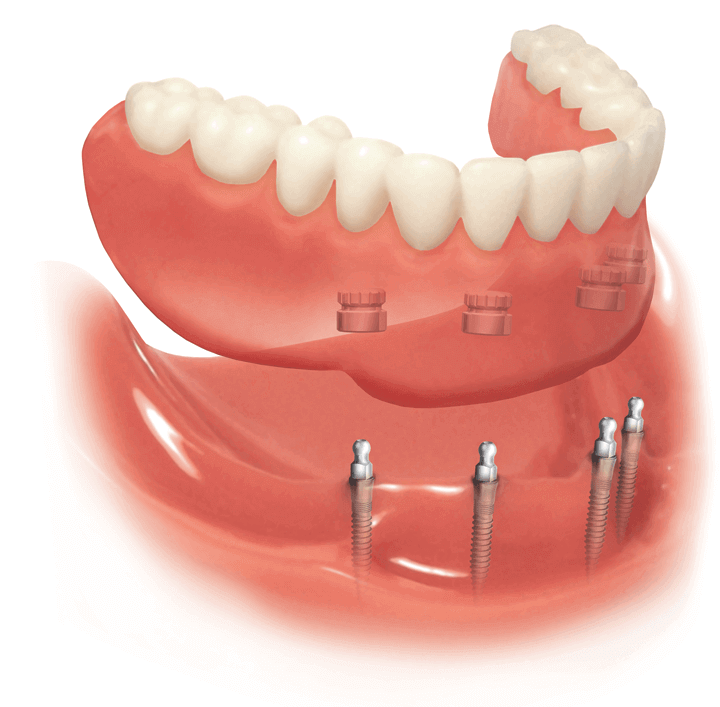Does Health Insurance Cover Dental Implants? A Guide to What’s Involved in Getting Dental Implants
Dental implants are an ideal way to replace a missing tooth or teeth permanently. They are fixed into your jawbone and then covered with a dental crown that looks just like a natural tooth.
Are Dental Implants Covered by Insurance?
Suppose you have a basic dental insurance policy. In that case, you cannot expect it to cover the total cost of a dental implant procedure, as this is something that falls under the cosmetic dental procedure. However, look at the cosmetic dental procedure coverage section, and you may find that a portion of dental implants is covered in your policy. The coverage may be 50% of the cost, which means only half of the procedure cost will be beard by your insurance company and the rest of the amount you may have to pay from your pocket.
If your existing dental insurance does not cover dental implants, you may look to upgrade to a policy that covers them or find out about discount dental plan memberships.

Why do you need dental implants? What are the benefits?
Dental implants are fixed in place permanently, just like your natural teeth, which is why most people prefer this treatment to replace their missing teeth. In addition, implants are durable and long-lasting, and you don’t have to modify your diet post-treatment.
Caring for your dental implants is easy. You need to look after them just how you look after your natural teeth. All you must do is regularly brush, floss, get dental check-ups, and eat a healthy diet.
Another great advantage of dental implants is that they require no alteration to the nearby teeth. Following good dental hygiene makes your implants last for 20 years or more.
Dental implant procedure
Dental implants are like small screws, usually made of titanium, surgically placed into your jawbone. Once they are fixed in your jawbone, they are covered with a dental crown to replace the missing tooth.
The dental implant procedure involves various stages, which require you to make multiple visits to your dentist. The entire treatment may require a few months to complete, and it includes the following:
-
-
- Taking scans and/or x-rays to check if your jawbone is fit enough to take an implant
- Administering anaesthesia before the surgery to insert the implant into your jawbone
- Fixing a temporary crown until the time the bone grows around the implant
- Taking a mould of your mouth once the implant is stable to get a permanent dental crown ready
- Removing the temporary crown to fix the permanent one
-
What Types of Dental Implants Are Available?
- Single Tooth Implants:These are used when you need to replace a single missing tooth. A single implant post is placed in the jawbone, and a crown is attached.
- Multiple Tooth Implants:When you have multiple missing teeth in a row, implant posts can support a dental bridge or individual crowns for each missing tooth.
- All-on-Four Implants:This approach is used for full arch restoration, typically for patients missing all or most of their teeth. Four implant posts are strategically placed in the jaw to support a full set of fixed dentures.
Who is a candidate for dental implants?
Whether or not you are a perfect candidate for dental implant depends on your jawbone and overall health. Therefore, it is best to speak to your dentist, who will examine your mouth and tell you whether you must go for dental implants or not.
Are there any complications associated with dental implants?
Dental implants have a 95% success rate for patients with no underlying health conditions. Complications with dental implants are rare, but there are chances of infections, nerve damage, surrounding teeth or blood vessel damage, and sinus problems. In addition, health conditions like diabetes, osteoporosis, obesity and drug use may affect bone healing. Also, smokers are at a higher risk of experiencing implant failure.
How many teeth can I replace with dental implants?
Dental implants are ideal to be used to replace one or more teeth. Replacing a single tooth with an implant can be performed many times. If there are many missing teeth in a row, your dentist will create a bridge between multiple implants. It is possible to replace the complete top or bottom teeth with the help of ‘all-on-4’. This procedure demands the strategic placement of four implants into the upper and/or lower jawbone to permanently hold an entire set of teeth.
How much do dental implants cost?
In most cases, you will pay the complete or at least 50% of the implant cost from your pocket (if your insurance covers 50%). However, the total implant cost may depend on various factors like the complexity of your case, the number of implants needed, the dental implant type your dentist uses, the kind of artificial teeth you choose, and the need for other procedures before getting an implant, and more. The cost will also vary depending on your location and which dentist you use. A single implant may cost you thousands of dollars.
How Much Can You Claim Back on Dental Implants?
Dental implant coverage varies among health insurance companies, including some of the top providers in Australia, such as HBF and Medibank. Here’s a general overview of what you can expect regarding dental implant coverage with these insurers:
- HBF:If you have Major Dental and Implant coverage with HBF, your plan may include treatments related to repairing or replacing teeth, encompassing services like crowns, bridges, endodontics, and dental implants. The rebates you can receive depend on the duration of your coverage. In most cases, you’ll need at least 12 months of major dental coverage before making a claim. HBF offers multiple coverage options with varying annual limits for dental service claims.
- Medibank:This insurer, too, has major dental plans that cover a variety of dental services, including dental implants. Your annual limit depends on the claim-back percentage you choose and the premium you pay. It is best to connect with them for specific details on how much they’ll cover for dental implants.
Why Are Dental Implants Not Covered by Medicare?
Medicare does not cover dental implants primarily because they are not deemed a necessary medical procedure. Medicare mainly provides full or partial payment for various healthcare services for Australian citizens and permanent residents. It operates based on the Medicare Benefits Schedule (MBS) and offers additional support through the Medicare Safety Net for those with higher-than-average medical costs.
While Medicare is the backbone of Australia’s healthcare system, many dental procedures, including implants, are not covered. Dental services generally fall outside the scope of Medicare, leading to their expensive pricing. These services are considered elective or cosmetic rather than necessary for a patient’s health. As a result, individuals seeking dental implants typically have to bear the full cost themselves or explore private health insurance options for potential coverage.
Ask for a quote
Knowing the cost of dental implants before you begin with this treatment is essential. Please speak to our dentists to know the price for implants for your particular case. Our team will examine your mouth and provide an estimated cost for the procedure. Call us on (03) 9133 8657 or drop an email at [email protected] to schedule an appointment.
FREQUENTLY ASKED QUESTIONS
How long do dental implants last?
Dental implants may last for an average of 20 years. Many factors may affect the life span of your implants, like how you care for them, what your overall oral health is like, what type of implants you have, and more. If you wish to extend the life of your implants, it is essential to care for them well. Your dentist will share a list of dos and don’ts after the implant procedure. You must follow the instructions to ensure your dental implants cater to you for years without causing any trouble.
Are there different types of dental implants? What are they?
There are two types of dental implants available today, namely endosteal and subperiosteal. Endosteal is the most common implant that requires the tooth root to be replaced by screws or blades made of titanium or ceramic. These implants are surgically drilled into the jawbone to make arrangements for fixing an artificial tooth. The other type is a subperiosteal implant placed below the gums but above the jawbone. They are also known as “on-the-bone” implants.
Are dental implants worth it?
Dental implants are one of the best ways for replacing your missing teeth. Though the procedure of dental implants is lengthy and costly, the outcome is worth your time and money. Dental implants look like your natural teeth, making it difficult for anyone to spot the difference between your teeth and artificial teeth. Their maintenance, also, isn’t very tedious. All you need to do is care for them just like your natural teeth, and they will cater to your needs for a good 20 years or even more.









